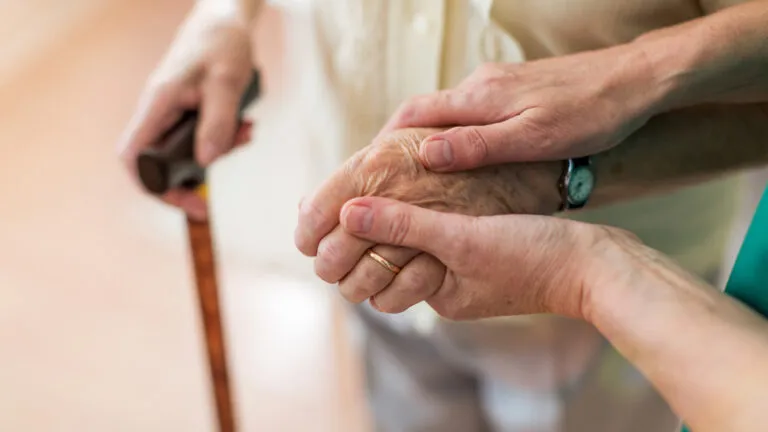This article is based on information provided by Home Instead Senior Care.
Several progressive disorders can cause the syndrome we know as dementia. The various disorders affect behavior, thinking, memory and the ability to perform everyday tasks. Alzheimer’s disease is the most common form of dementia.
As with other dementias, Alzheimer’s disease likely stems from a variety of factors, according to most experts. Among these may be cardiovascular disease, family history, a history of head trauma, or advanced age.
Early Signs of Dementia
It is normal for an older person to lose eyeglasses or forget someone’s name once in a while. However, memory loss is not a natural part of aging, even though many of us believe it to be so. Memory problems that are significant and disrupt daily life may indicate that someone has dementia. Getting confused about directions while driving on a familiar route, for instance, or losing track of bills on a regular basis may be early symptoms.
According to Dr. Jane Potter from the University of Nebraska Medical Center, some early signs of dementia may include:
- Difficulty remembering names and recent events
- Apathy
- Depression
- Dementia Symptoms
These 10 signs of Alzheimer’s disease have been identified by the Alzheimer’s Association:
- Memory loss that disrupts daily life.
- Challenges in planning or solving problems.
- Difficulty completing familiar tasks.
- Confusion with time or place.
- Trouble understanding visual images and spatial relationships.
- New problems with words in speaking or writing.
- Misplacing things and losing the ability to retrace steps.
- Decreased or poor judgment.
- Withdrawal from work or social activities.
- Changes in mood and personality.
- Be sure to discuss any concerns you may have about these signs with a physician.
Stages of Dementia
A general pattern of decline that is characterized by stages typically affects everyone who has dementia, even though the syndrome affects each person differently. Gaining a knowledge of the various stages can give you a better picture of what to expect as the disease progresses. It can also help you plan accordingly for the additional care that your loved one will likely need along the way.
Dementia is typically grouped by experts in the field into three main stages:
- Early stage dementia
- Middle stage dementia
- End stage dementia
Read more for descriptions of each stage.
Lewy Body Dementia
This type of dementia occurs when deposits of a protein called “Lewy Bodies” build up in the brain and disrupt the brain’s normal functioning. The protein deposits were named after the scientist who first discovered their connection to dementia.
Symptoms of Lewy Body dementia can be similar to those of Alzheimer’s. In both cases, the person may have poor judgment, confusion and memory problems. However, Lewy Body dementia symptoms may also include excessive daytime drowsiness, hallucinations, tremors and a lack of facial expression.





